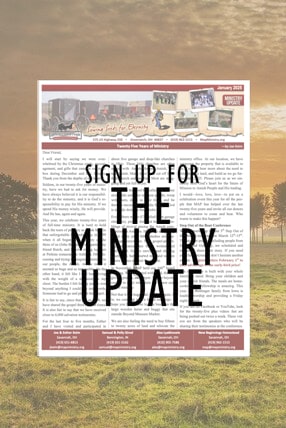Pride and It's Consequences
By Eli Stutzman
August 28, 2013
 But he giveth more grace. Wherefore he saith, God resisteth the proud, but giveth grace unto the humble. James 4:6
But he giveth more grace. Wherefore he saith, God resisteth the proud, but giveth grace unto the humble. James 4:6
One definition of pride is this from yourdictionary.com: an unduly high opinion of oneself; exaggerated self-esteem; conceit haughty behavior resulting from this; arrogance
Jonathan Edwards wrote this about pride over 250 years ago: Pride is much more difficult to discern than any other corruption because, by nature, pride is a person having too high a thought of himself. Is it any surprise, then, that a person who has too high a thought of himself is unaware of it? He thinks the opinion he has of himself has just grounds and therefore is not too high. As a result, there is no other matter in which the heart is more deceitful and unsearchable. The very nature of it is to work self-confidence and drive away any suspicion of evil respecting itself.
I believe we can always spot pride in others much easier than in ourselves; yet finding pride being present in another person is usually rather fruitless. Rarely will anyone admit to being proud, because it seems to them, they are being perfectly reasonable. Therefore, it is only possible to work on yourself. I don't think you can make someone else humble. They have to humble themselves. To oppose pride, we need to practice humility.
Be careful of disregarding the opinion of others. God often uses the weak things of men to work his perfect will. The proud man often forgets that the church is a body, and all parts have a place of usefulness. He feels others may not even be believers.
The Bible has some details of incidents that show us what took place when pride had its way. One consequence of pride is that God will oppose us. We certainly don't want that.
Nebuchadnezzar thought of his power as coming from his own cleverness. Uzziah, king of Judah (2 Chronicles 26) became strong and he, too, thought too highly of himself, contracting leprosy as a result.
Pride is often present in politics, in business, in every race, and I suspect in every church-all kinds of places where people deal with each other. We are all aware of the feeling inside ourselves when someone says to us, "See, I was right!" or "Didn't I say that's what would happen?" or "You should have listened to me." Yes, we can feel it when we are wronged.
There are quite a number of things that I could say about pride. The proud man can barely fit into any church, but the humble will fit in many. Others have to come to this understanding of what is right or he will be gone.
Proud people on a committee can only work if they are in charge. Often they do in fact lead, but it does not go well. Other voices are often simply ignored.
Pride has consequences whether we recognize it or not. Pride affects people of all types. It affects people in all nations. From the tip of South America to Alaska, and on to Europe and Asia, all can be guilty of thinking too highly of themselves. Never will pride be a desirable attitude in any man anywhere.
Nebuchadnezzar was not Jewish, yet God punished him just as if he were one of his own people. It was simply a case of the famous, successful king taking the credit for his success. Being a Gentile did not get him out of experiencing its consequences. Being born in this century or the last century will not get you out of the consequences of pride, either.
See Daniel 4:28-30. All this came upon the king Nebuchadnezzar. At the end of twelve months he walked in the palace of the kingdom of Babylon. The king spake, and said, Is not this great Babylon, that I have built for the house of the kingdom by the might of my power, and for the honour of my majesty?
The consequence was immediate. The Bible says he ate grass like cattle for seven years.
The Bible also tells us that Satan was cast out of heaven for the sin of pride. Ezekiel 28:17 says: Thine heart was lifted up because of thy beauty, thou hast corrupted thy wisdom by reason of thy brightness: I will cast thee to the ground, I will lay thee before kings, that they may behold thee.
Here is another key identifier of pride: "I am right and I need you to admit that." When I was young, we would sometimes argue endlessly that we were right. Little did we suspect that we could be wrong in motive when we were right with our facts. We can know our Bible from front to back and prove that we are right; yet in all this, if our motive is to get others to see it our way, we have already lost the battle.
Pride will not allow itself to be taught. It is convinced that it already knows the truth. It always needs to win the argument. Winning the argument proves I was right. I am right because I am older or smarter or have more education. You may be right with your facts, but you may have just lost a friend or disappointed a loved one.
Those who seek to avoid pride do well to pay close attention, because the world around us is not very aware of pride at all. It will without doubt have consequences, whether we do or don't identify it correctly. If we identify it wrongly, it is like getting a wrong diagnosis from your doctor. We take medication, but it doesn't do any good.
Lord, give me the wisdom to properly see pride in my own life and then deal with it so that I may experience your tremendous grace. Amen. Humble yourselves therefore under the mighty hand of God, that He may exalt you in due time. 1 Peter 5:6 - End
Related Articles
« Back to Articles







